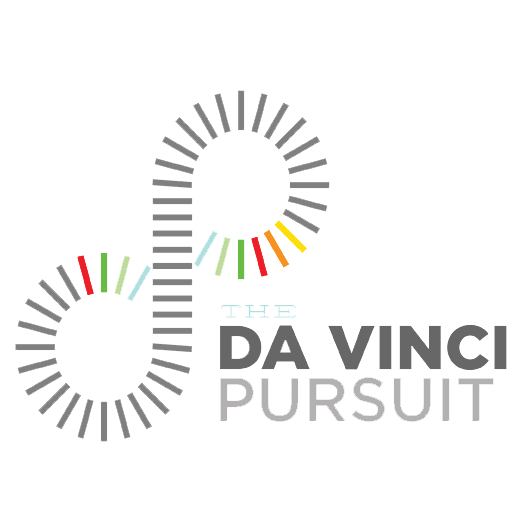
The Art and Science of Dahlias: A Workshop
A Partnership Between the daVinci Pursuit and Brewster Book Store
Join us for a hands-on workshop that combines botanical science, artistic expression, and personal reflection. Through guided journaling and drawing exercises, you will deepen your connection to these stunning flowers as you learn about their biology, cultivation, and history.
Discover how to identify different dahlia varieties, understand their growth patterns, and explore the scientific aspects behind their vibrant blooms. Then, express your observations and imagination through sketching and creative journaling, capturing the beauty and complexity of dahlias in your own unique way. Whether you are a gardener, artist, or curious learner, this workshop offers an enriching blend of science, creativity, and mindfulness.
Composed of five unique sessions taking place on select Friday mornings this fall, we encourage you to join us for the whole workshop, at a discounted price, or to attend an individual session. Full information is available on the Brewster Book Store website.
Dates, Times, Locations
Supply List
Books
Dates and Times: 5 weeks – Fridays, September 12, 19, 26, October 10, November 7, 2025 (10 am to 12 pm)
Length: 5-week session – single(s) or full session options
Registration Fee: $25 per session, $100 season pass
Location: Brewster Book Store, 2648 Main Street, Brewster, MA 02631
Sessions:
Session 1: Exploring Dahlia Anatomy and Growth
Delve into the scientific understanding of dahlias, including their botanical structure, varieties, and growth habits. Through guided journaling, record your observations and reflect on the natural world of dahlias while sketching simple botanical illustrations.
Session 2: Cultivating and Caring for Dahlias
Learn about best practices for planting, nurturing, and maintaining healthy dahlias. Capture your experiences and insights in your journal, and create detailed drawings of different dahlia forms, colors, and textures.
Session 3: Designing with Dahlias — Artistic Expression
Explore floral arrangement principles and artistic compositions inspired by dahlias. Use drawing exercises to experiment with floral designs and arrangements, translating your ideas onto paper with a focus on color, shape, and layout.
Session 4: Personal Reflection and Creative Celebration
Combine your botanical knowledge and artistic skills in a reflective journaling session, capturing what dahlias mean to you. Complete a final artistic piece or journal entry that celebrates your learning journey and the beauty of dahlias in both science and art.
Session 5: Life Beyond the Season
What happens when the season ends? How do we prepare our lovely Dahlias for winter? We will explore the science of lifting, storing, and splitting tubers.
(Feel free to use/reuse what you already have or purchase from the Bookstore)
-
Basic watercolor paints including black and brown
-
Paintbrushes (Round No 2 and 6)
-
2 Jars of water
-
Paper towels
-
Mixing palette
-
A blank watercolor paper journal of your choosing (The bookstore has some nice options)
-
Backpack or shoulder bag
-
Soft pencil (HB, H, or #2)
-
Pencil sharpener
-
Technical drawing pen
-
Small ruler

-
Dahlias: A Little Book of Flowers, Tara Austen Weaver, 978-1632173614
Floret Farm’s Discovering Dahlias: A Guide to Growing and Arranging Magnificent Blooms, Erin Benzakein, 978-1452181752
Try to get copies before the first class.
About Mark
Mark Kesling is a pioneering educator, designer, and professional photographer with a rich and diverse background in the arts and sciences. Beginning his photographic journey in the 1970s as a wedding and studio photographer, Mark has evolved his practice to focus on the dynamic intersection of art and science. His innovative approach utilizes scientific principles to enhance the artistic skills of photographers, making the learning experience both engaging and impactful.
With over 45 years of extensive work in museum design and education, Mark has established himself as a leader in the field. As the founder and CEO of the daVinci Pursuit, he drives initiatives that embody the concept of a “museum without walls,” fostering an inclusive and accessible environment for learning and exploration. His unique skill set enables him to blend artistic creativity with scientific inquiry, captivating learners of all ages.
Mark collaborates with a diverse range of partners, including neighborhood organizations, city institutions, and educational entities, to create meaningful art and science installations in communities. Through his work, he inspires and enriches the lives of those he engages, making a lasting impact on the cultural landscape.








